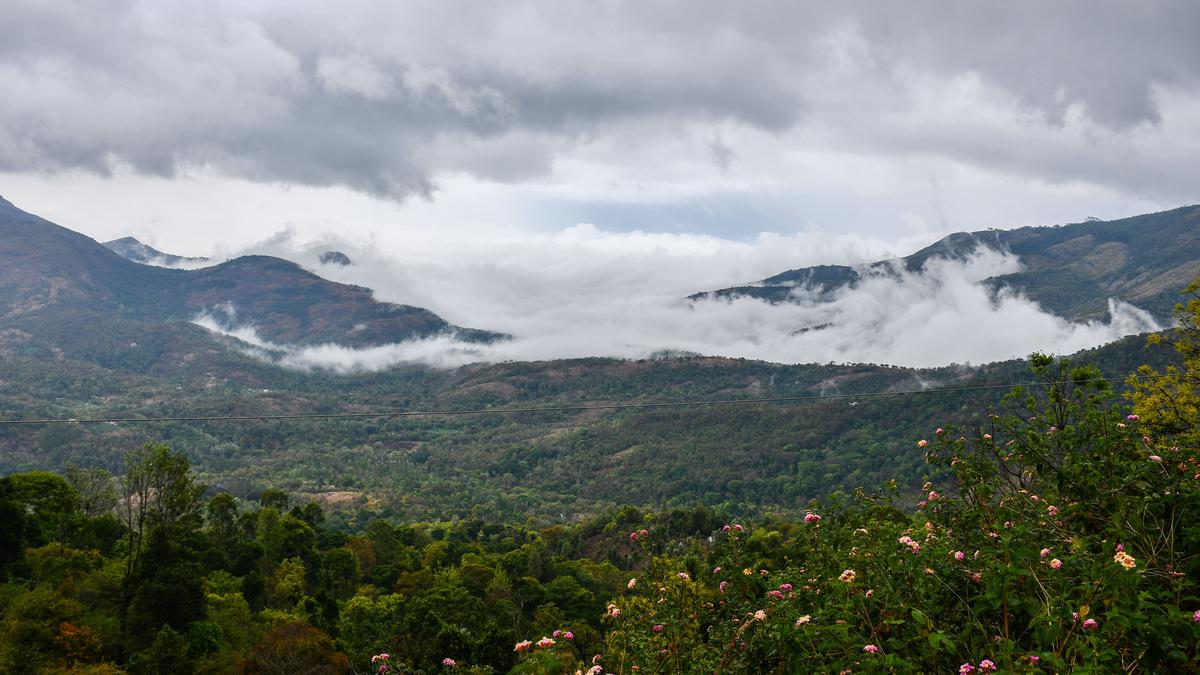Heading into the hills of Kodaikanal in the middle of balmy April was already a treat. Then, to sit on the lush grounds of a boutique hotel with nearly 150 people, the cool air speckled with a light drizzle, listening to ‘Music from the Mountains to the Skies’, was simply magical.
The unique concert held at Mountain Retreat Kodai against the starry evening sky, kicked off with the sonic stylings of the Dindigul Mavattam Kodaikanal Poombarai Gramiya Kalai Kuzhu. The band of nine musicians of the indigenous Arunthatiyar community played their traditional percussion and wind instruments, including the kombu, an S-shaped brass instrument that looks like an elephant’s raised trunk.
Members of the Dindigul Mavattam Kodaikanal Poombarai Gramiya Kalai Kuzhu with Mary Therese Kurkalang (far right), consultant for Sky Islands
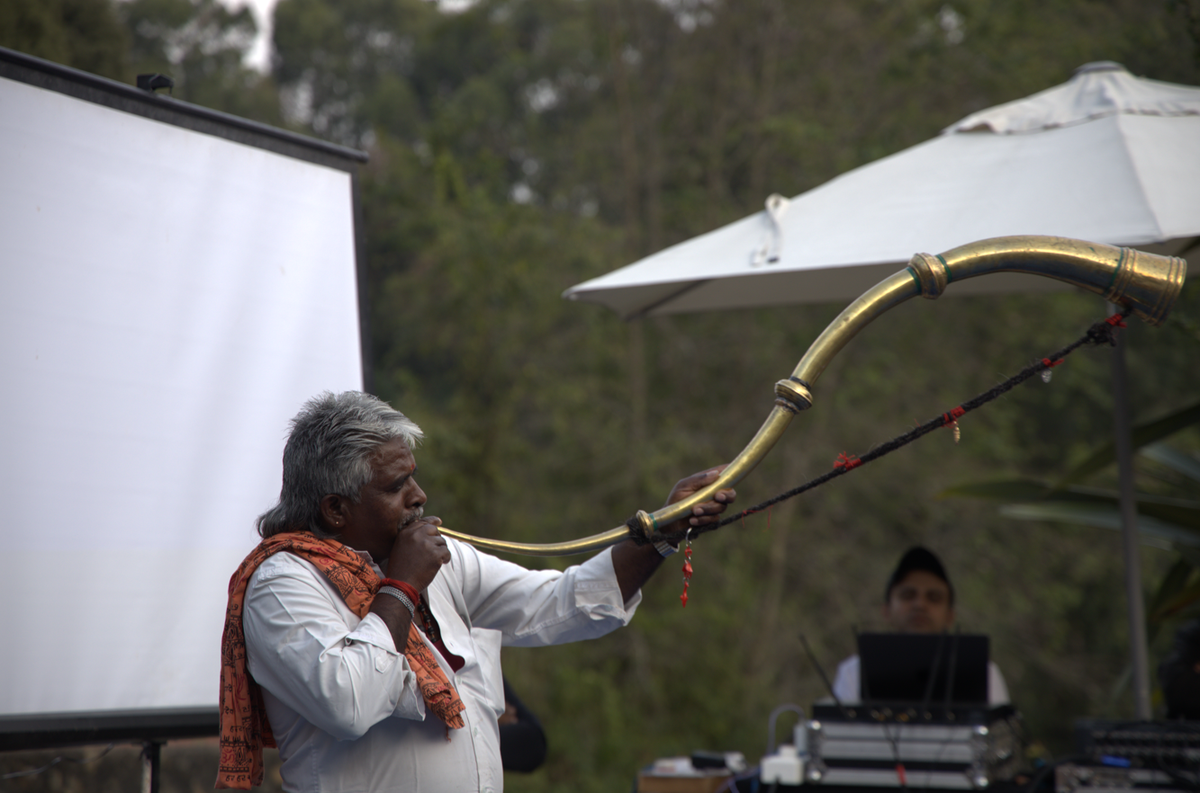
A musician playing the kombu
They were followed by singer Seema Ramchandani, a Kodaikanal resident and formerly of the pop band Viva, who belted out covers of Joni Mitchell to Jason Mraz. Finally, lit by spotlight and moonlight, indie artist Suman Sridhar closed off the show with her original songs that blend jazz, Indian classical music, spoken word, opera and Afro-beat. She concluded her set with her underground hit Plastic, a track that is Sridhar’s commentary on the increasing plastic pollution around us.
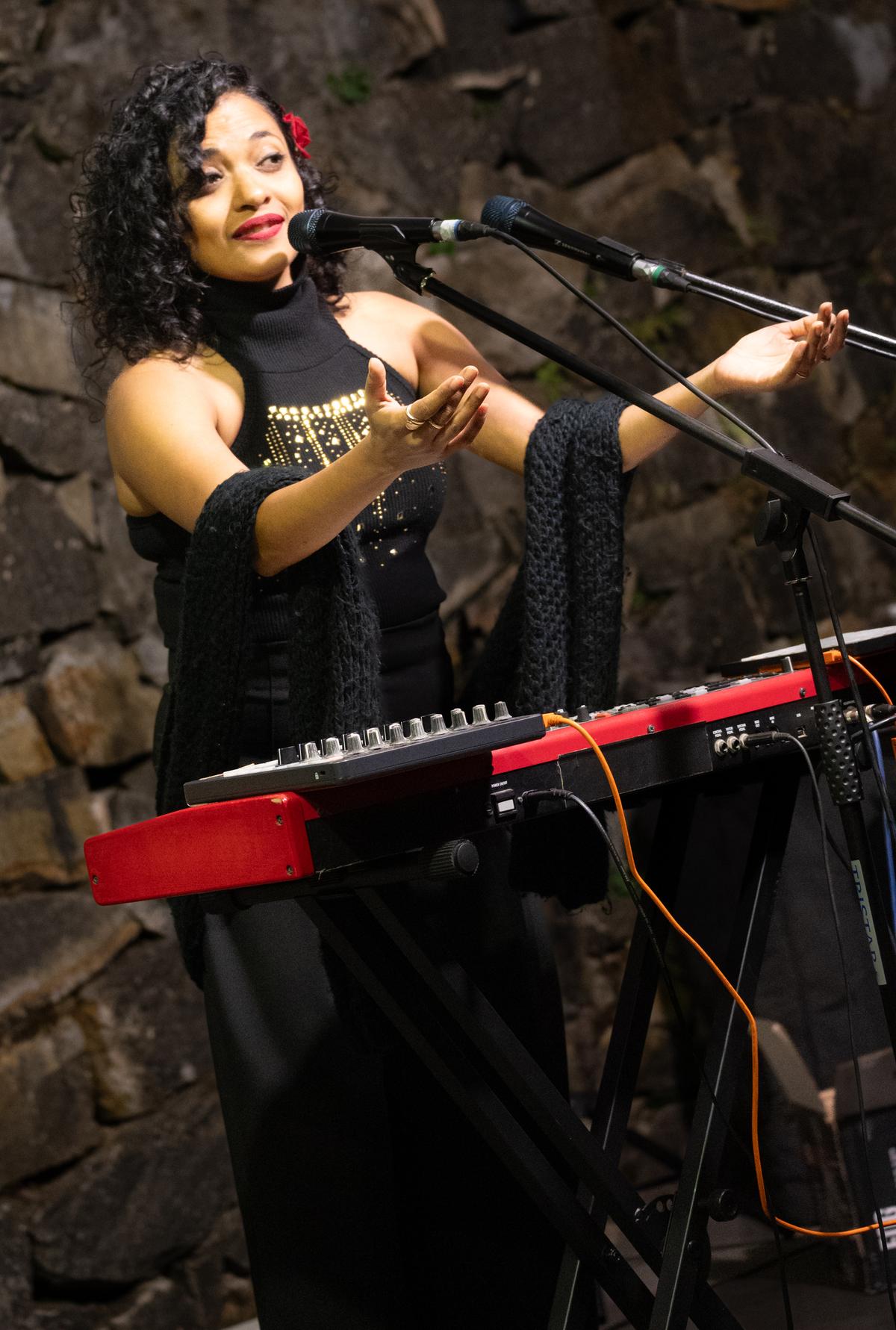
Suman Sridhar
The concert marked the launch of Sky Islands, an independent digital platform that “aims to connect communities across the Western Ghats towards engagement, action and storytelling”. Rajni George, its founding editor and publisher, thinks of the hill station in Tamil Nadu “as a special place” having grown up here.
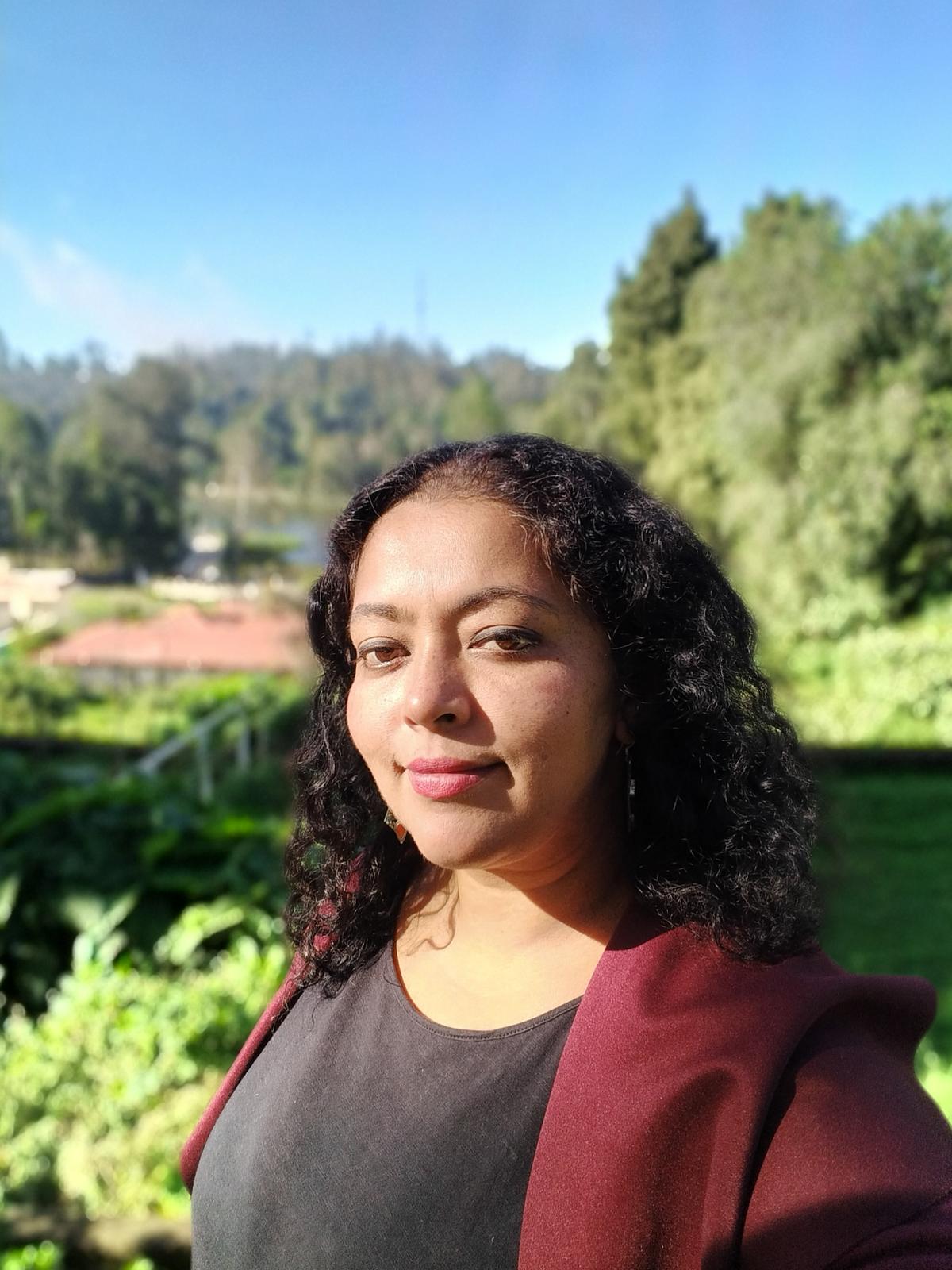
Rajni George
Nearly two decades ago, the widespread protests against the Hindustan Unilever mercury contamination of the area was her first memory of local groups “proactively coming together to stop Kodaikanal going the way of other hill stations around India”. Inspired by this formidable older generation who took on industry and the state, George started looking around for others to band together “to preserve and protect” their piece of the earth.

Speaking of their experiences
George brought her experience and connections from the publishing and media field into play, and since 2021, along with editor-writer Neha Sumitran, “ran a hyperlocal publication called The Kodai Chronicle to speak of the environmental degradation as well as the amazing things happening in this region”. After four years of running it, George wanted to bring other citizen-led conservation and care to the centrestage, and so she decided that while the Chronicle’s website will remain as “an archive for the hyperlocal stories”, the new Sky Islands platform, administered by the Kodai Chronicle Trust, will mature this vision.
‘Sky islands’ are geographically isolated high-elevation regions that have distinct flora and fauna from its lower-elevation surroundings. Like islands, “they’re cut-off but still share so much”. For George, the poetry and potential of this name was the reason for adopting it for the platform. With it, she seeks to bring together stakeholders along the Western Ghats — from the Nilgiris and Anamalais (Eravikulam, Munnar, and Meeshapuli mountains), to Banasura Hills, Chembra Hills, the Palanis and more — to collectively share and pool ideas on conserving and celebrating the region.
Chinnamalai in the Western Ghats
She intends for “local news to be sustainably reported from the perspective of lived experiences”, to bring more adivasi voices into the debates on what should be going on in the hills, and become a confluence of the larger community taking on the environmental fight, to take ownership of their island. “Each month, we will publish an audio format and longform story from the region, which speak directly to issues and initiatives that affect the people living here. There will be an ‘engage’ section, which will highlight the various citizen conservation campaigns and map out the opportunities for the people of the Western Ghats to take part. Sky Islands will also run outreach programmes and workshops led by indigenous and other environmental stakeholders to help locals navigate the bureaucracy to make change happen,” she explains.
Opening up the mandate to spotlight the entire region means that the platform can access a larger pool of resources, financially and people-wise. They’ll be networking with independent researchers and environmentalists, private organisations and government bodies and as a node for important information. “With Sky Islands, we’re helping locals across the Western Ghats feel ownership and engage with conservation initiatives in their regions,” she says. For instance, the day after the fundraising concert, Murgeshwari, a contributing writer and a daily wage agricultural labourer from the Paliyar adivasi community, conducted an outreach programme. “She spoke to schoolchildren in Kodai about the importance of the forest to the indigenous way of life and taught them songs as well,” says George.
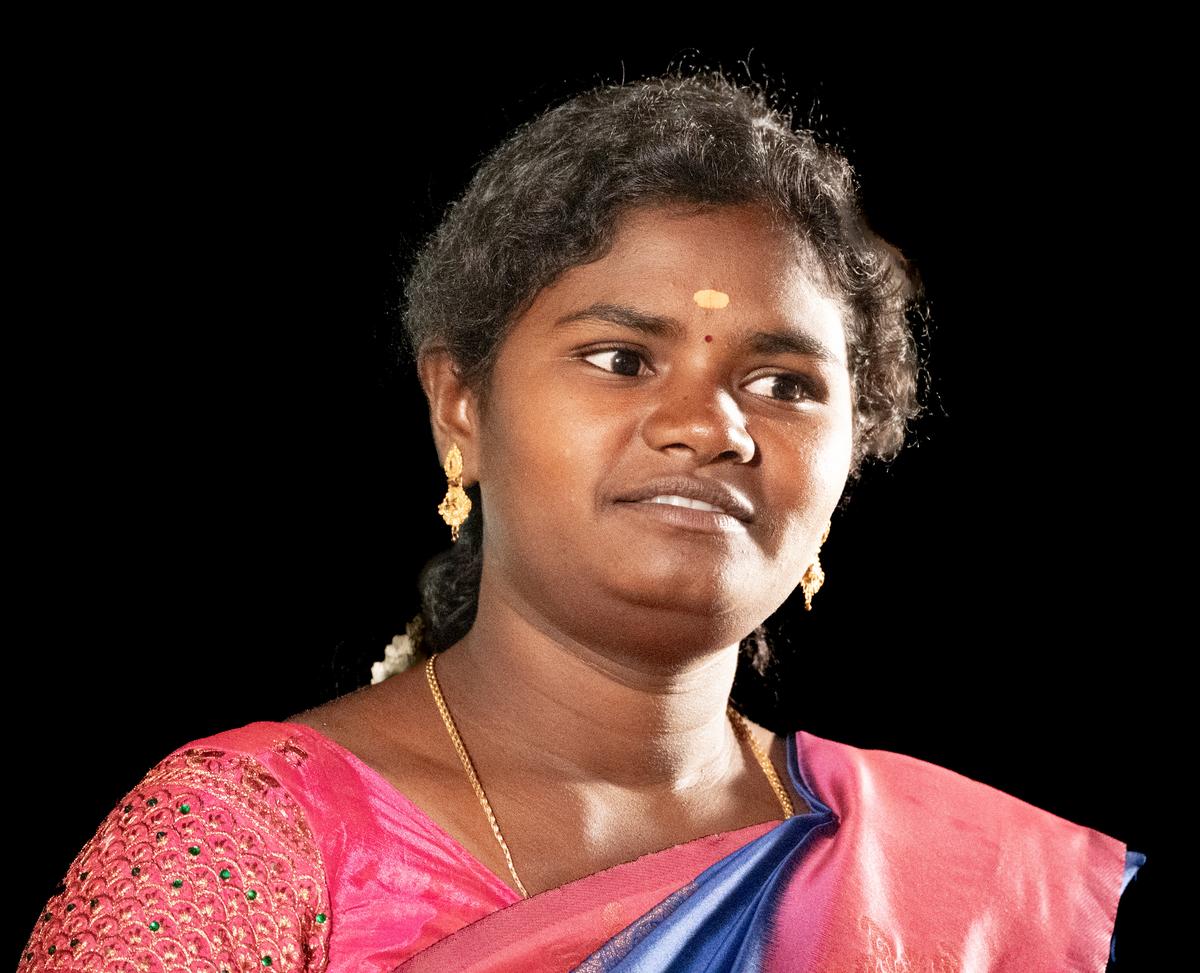
Murgeshwari
Adivasi voices
Over the years that Murgeshwari reported for The Kodai Chronicle and now Sky islands, she found herself being able to tell stories that are often missed by the mainstream media. Now, with a grant from Shared Ecologies, a programme by the non-profit Shyama Foundation, to continue writing from her lived experience as one of the original indigenous stakeholders, she says it “gives me a sense of self-respect, and allows me to provide for my four-year-old son without constant worry”. “While previously, I’ve focused on writing about my own community’s challenges with the outside world, the expanded focus of Sky Islands allows me to swap the knowledge that the many adivasi communities hold about the forests and this land, and present it to one another and the world.”
She believes that involving the adivasi stakeholders in protecting these regions is the only way forward. “We’ve absorbed the knowledge about the forests. We can tell things by looking at a leaf or the sky,” she says, highlighting the importance of passing on this knowledge. “If people know, they will care.” For her, conservation policies are well-meaning and well-intentioned, but aren’t enforced at all. “Each time I see garbage in bins shaped like the Indian Gaur, it breaks my heart. Who thought of this? Does it really translate the message,” she asks.
Connecting stakeholders
The common-sense learning over these several decades of conservation work has been that the fight must be tailored to the region. “It’s important to distinguish between the footprint of the capitalist-industrial complex and those of individuals,” says restorationist and rewilder Suprabha Seshan of Wayanad’s Gurukula Periyar Botanical Sanctuary. She points out that blame can’t be equally shared between these categories “because the destruction of these bio-diverse regions are being done with impunity by the former hand-in-hand with the state”. She has spent a lifetime marking out this difference, but “it hasn’t caused much dent”.
If people take ownership of the lands around them, however, mainstream conservation discourse will step outside of the “individual blame game” towards encouraging cooperation and community living. “First, we need to protect what exists before beginning to restore what has been destroyed,” says Seshan, who, for over two decades, has been working with the botanical sanctuary to fight species extinction. They run “search-and-rescue operations” for native plants, “bring them back and multiply them”, and if the “climate and the social climate allow, they would return these plants to the sites of origin”.
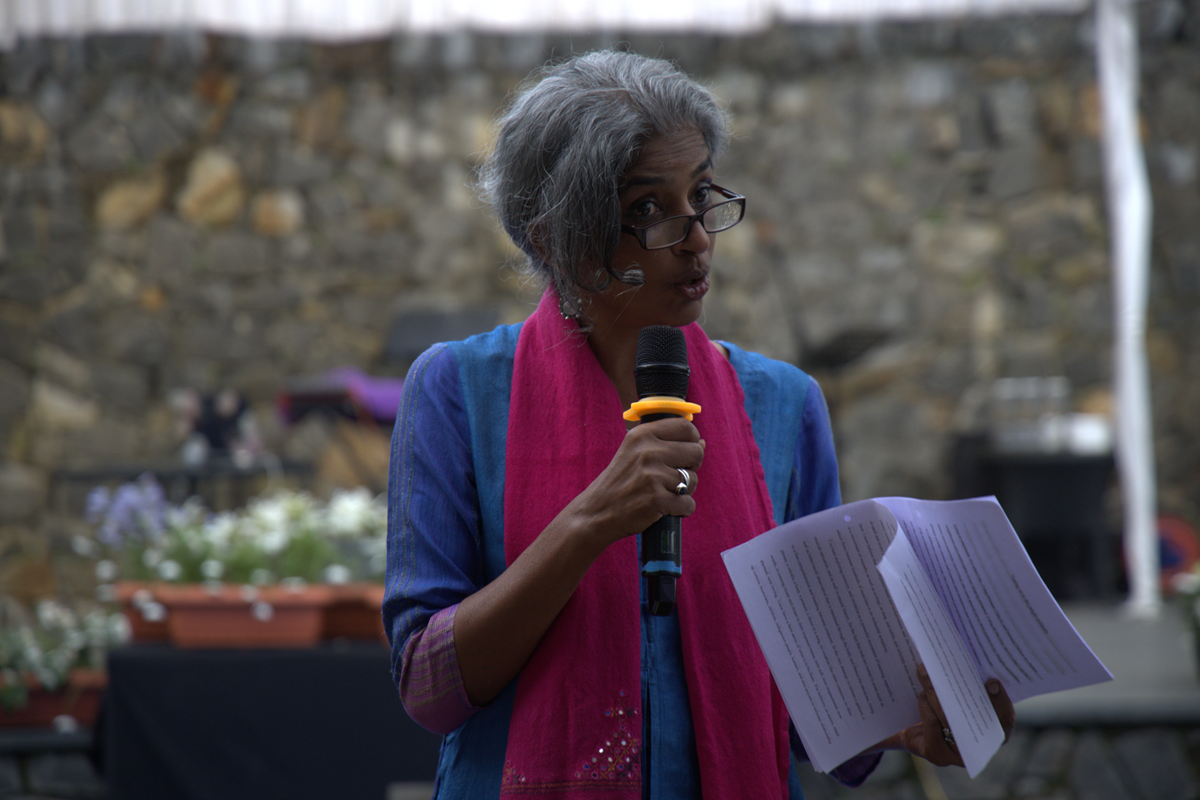
Suprabha Seshan speaking at the Sky Islands launch
Highlighting these local conservation initiatives, compounding their impact and connecting stakeholders of the Western Ghat are some of the tasks laid out by Sky Islands. “We need to understand what it means to cooperate in the long run because the odds against resilience are so high,” Seshan points out. And these kinds of locally-birthed, participative responses might just be another arrow in the quiver of saving the hills — and a guiding light to inspire other such special geographical regions in the country.
The writer and poet is based in Bengaluru.
Published – May 09, 2025 02:39 pm IST
